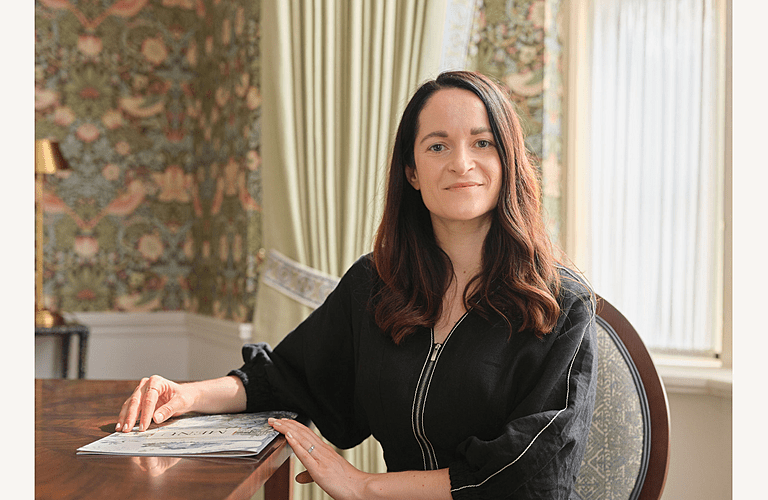192 Sloane Street, London SW1X 9QX

How Our Nutritional Requirements Change with Age
Good nutrition is vital for supporting the overall wellbeing, vitality and independence of older adults. Although nutrition is a key pillar of health at all life stages, as we age, our nutritional requirements change, creating a set of unique needs in our later years. In this article, our resident clinical nutritionist Eva Humphries MSc explores a few key considerations that contribute to optimal nutrition for older adults.
Protein becomes more important
Protein supports:
- Strength
- Muscle mass
- Bones
- Repair
Studies suggest an individual over 65 years of age may need twice as much protein as a teen to maintain muscle mass. On any given day, our bodies rely on a steady supply of protein to support maintenance, repair and remodelling efforts. Without us noticing, tissues such as muscles are repaired, new cells are created, and our bones are slowly remodelled.
As we age, the requirement to repair becomes more acute, putting greater emphasis on obtaining the correct quantity of protein. At the same time, thanks to normal physiological changes of the ageing process, our capacity to digest foods declines over the age of 70, making it harder to derive protein from our food. This may sound like a fighting battle, but in reality, it just comes down to ensuring a good source of protein such as meat, fish, eggs, or dairy is present in every meal.
Nutrient needs increase
Nutrient needs notably increase for:
- Vitamin B12
- Calcium
- Vitamin D
- Zinc
Similar to protein, the requirement for certain nutrients increases as we age. First, Vitamin B12, a key nutrient used for energy production, becomes harder to obtain from food as a consequence of falling stomach acid levels. Bone-supporting calcium and repair-boosting zinc require special attention due to increased need, and the production of Vitamin D, the immune system and bone health bolstering sunshine nutrient, slows via the skin as we age. Alongside regular check-ups and testing for nutrient deficiencies, increasing the intake of these nutrients via food may be helpful.
At KYN, we devised a “hero list" featuring ingredients that are particularly high in specific nutrients to enhance our menus.
Such ingredients include:
- Vitamin B12 - found in egg yolks, calves’ liver, meat, fish and shellfish
- Calcium - found in parmesan cheese, whitebait and sesame seeds
- Zinc - found in oysters, hemp seeds and calves’ liver
- Vitamin D - getting outdoors between the hours of 12pm and 2pm on a regular basis remains the main option for Vitamin D synthesis but certain foods such as liver, Vitamin D enriched mushrooms and oily fishlike trout and salmon may contribute.
Hydration requires more focus
The human body holds onto less water as we age, putting greater emphasis on drinking more. A child under the age of 1 is likely to be made up of over 70% water, whereas an individual over the age of 65 may contain as little as 45%. The less water we hold onto, the greater the need to hydrate via drinks and foods.
Whilst knowing these facts is interesting, the real challenge is working around rapidly diminishing cues to drink. By the time an older individual feels thirsty, dehydration has often been reached, alongside which, fatigue, constipation and poor cognition may also be evident. Setting up visual reminders to drink via well-placed glasses of water and cups of tea can be useful.
Another often-overlooked aspect of hydration is the contribution food can make. Several vegetables, including cucumber, celery and lettuce and fruits such as melon, citrus and peaches contain a high percentage of water. Similarly, broths, soups, stews and jellies can make a hydrating contribution.
At KYN we believe that our residents deserve to have an extraordinary culinary experience. Our chefs craft deliciously enticing menus drawing on our evidence led approach to delicious food with nutritional value, improving quality of life for our residents.
Join Eva Humphries at KYN Hurlingham on 25 February to learn how the food we eat impacts our sleep. Find out more.
Related

Join our next Open Day
Please provide your contact details below.
If you are interested in working at KYN, please kindly visit the Careers page. The Open Days listed above are for potential residents and their friends and families, not for recruitment.
Thank you
Thank you for your interest in KYN. We will be in touch with you very shortly.
If you require any assistance in the meantime, please email enquiries@kyn.co.uk or call +44 (0) 20 3535 1923.

